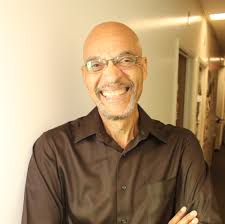There are two new rituals about the yearly census reports on poverty in America. One is that the census figures show more Americans continue to sink into poverty. The poverty rate this year jumped to the highest level in nearly two decades. Those hardest hit remain the same. Blacks and Hispanic were nearly twice as likely as whites to be poor. But racial distinctions aside, the census figures showed that there were a lot of poor whites too, and what's become an increasingly even more common trend many of those who tumbled into the poverty column are those who at one time were by all measures considered middle class.
The other ritual is that the news of rising poverty makes headlines one day. And the next it is forgotten. This year is no different. Not one of the GOP presidential candidates made mention of the poverty rate jump. The White House was equally mum on the report. Poverty remains the taboo word on the campaign stump, among lawmakers, the media, and the general public. It remains even a taboo word among many of the poor.
Political and public references to poverty virtually disappeared from the nation's vocabulary by the end of the 1960s. The continued existence of so many poor people after a decade of civil rights gains, the rash of initiatives and programs to end poverty, and massive government spending on the poverty programs by President Lyndon Johnson in the 1960s, was ultimate proof to many that tossing money and programs at ending poverty was flawed, failed, and wasteful. It seemed to fly squarely in the face of the embedded laissez faire notion that the poor in America aren't poor because of any failing of the system, but because of their personal failings. This is not just the hard bitten attitude of GOP free market conservatives. It is the attitude of the majority of Americans, including many of those who were poor. When poverty started to inch up in 2001, National Public Radio (NPR), the Kaiser Family Foundation, and Harvard University's Kennedy School, conducted a national poll to find out just what Americans attributed poverty in the nation too. The terms that were bandied about by many of the respondents no matter their background was that the poor were "unmotivated," "lacked aspirations to get ahead," and "didn't work hard enough." A majority believed America was a place where with hard work and determination anyone could succeed. In other words, the loud message was that if you're poor, it's your fault, don't blame society, and especially don't look to government to be the cure.
Democratic presidents and presidential contenders took this message to heart. Still reeling from the fierce conservative backlash to the perceived failure of Johnson's war on poverty, they gingerly moved around making any public pronouncements about massive government spending hikes on welfare, income supplement, and health care programs for the next two decades. The Democrats trembled that such talk would only stir up white anger by reinforcing the old perception that Democrats tilt toward minorities, and especially blacks.
But the poor stubbornly refused to go away. There was some hope during the 2008 presidential campaign that Democrats might lift the taboo about talking about the plight of the poor. Democratic presidential contender John Edwards fueled that hope when he openly talked about poverty, and that he would the issue one of the centerpieces of his campaign. In a well publicized appearance, Edwards launched his presidential campaign in the front yard of a mangled brick house in New Orleans's mostly black, Katrina and poverty devastated Upper Ninth Ward. He talked boldly about the need to crusade against poverty. Democratic presidential rivals Obama, and Hillary Clinton, not to be outdone, also gave speeches challenging the nation to do more to alleviate poverty. The talk didn't last. With the exception of Edwards, whose candidacy quickly disintegrated after public revelations about his love tryst, the candidates didn't utter another word about poverty during the rest of the campaign. The GOP presidential contender, John McCain, as expected, made no mention of poverty as a policy issue either.
The mantra for the GOP and many Democrats are deficit reduction, tax cuts, and measured, and narrow spending on infrastructure projects to jump start the economy. The widespread view that government should play a minimal role in assisting the poor has crept through in President Obama's speeches and talks in which he touts personal responsibility as the key to uplift. It would be the height of political and fiscal incorrectness, even heresy, to expect that to change in Obama's drive to keep and the GOP's drive snatch back the White House.
The ritual census figures that show that the number of poor continue to grow with little end in sight to the rise hasn't budged the nation to do anything about their plight. Poverty is the forbidden word that sadly is doomed for now to remain America's taboo word.
Earl Ofari Hutchinson is an author and political analyst. He is a weekly co-host of the Al Sharpton Show on American Urban Radio Network. He is an associate editor of New America Media. He is host of the weekly Hutchinson Report Newsmaker Hour on KTYM Radio Los Angeles streamed on ktym.com podcast on blogtalkradio.com and internet TV broadcast on thehutchinsonreportnews.com
Follow Earl Ofari Hutchinson on Twitter: http://twitter.com/earlhutchinson





